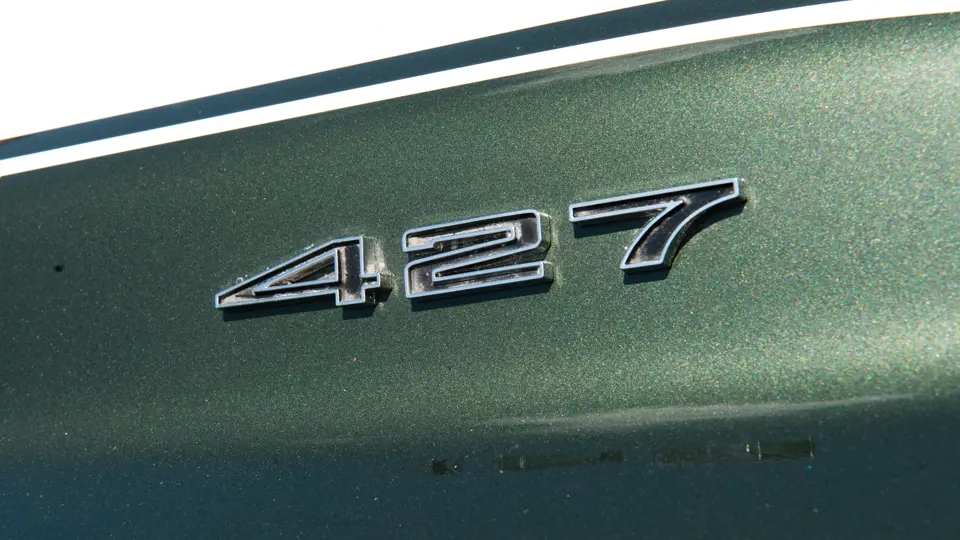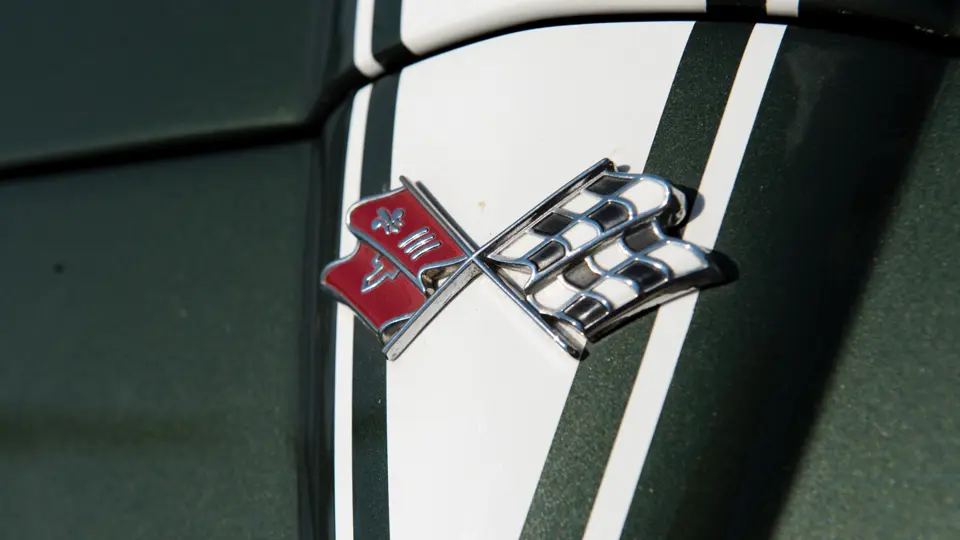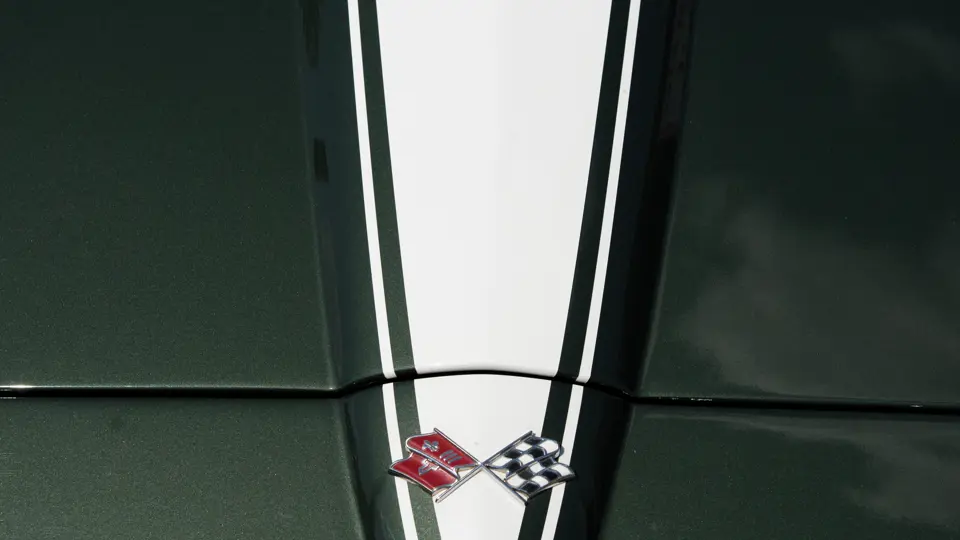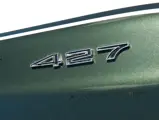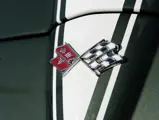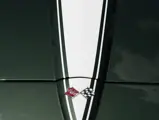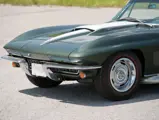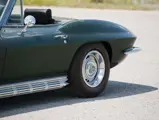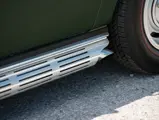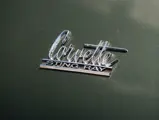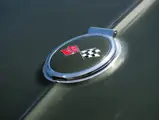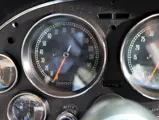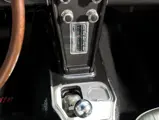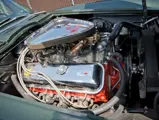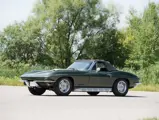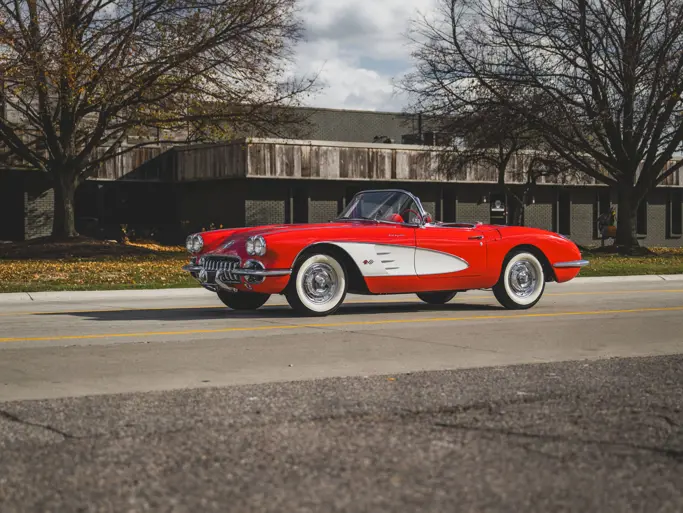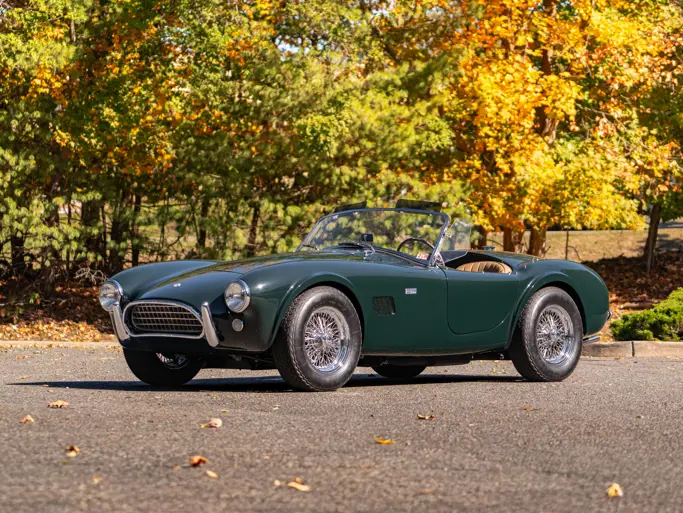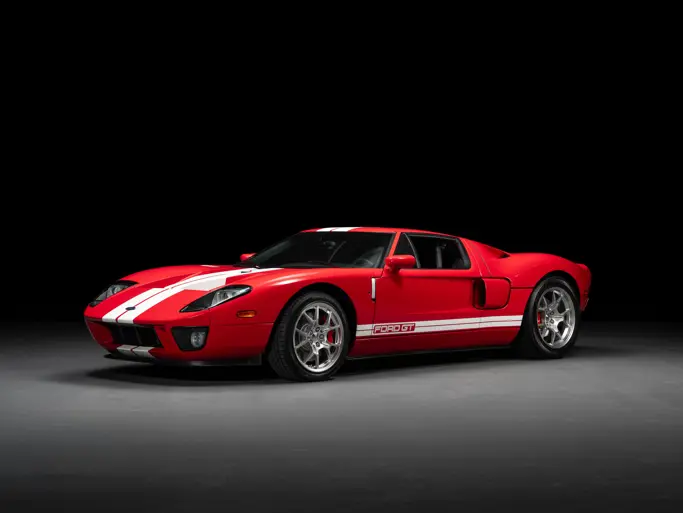435 hp, 427 cu. in. “Tri-Power” L71 OHV V-8 engine with triple Holley two-barrel carburetors, four-speed manual transmission, independent front suspension with coil springs, independent rear suspension with transverse leaf spring and lateral struts, and power-assisted four-wheel disc brakes. Wheelbase: 98 in.
Thanks to the Shelby 427 Cobra and its continued dominance on the racetrack, Chevrolet engineers were forced to counter with a 427 of their own by enlarging the 396 V-8 for the 1966 model year. The Mark IV “big block” motor was noted by the appropriate bulge in the hood and corresponding “stinger” decal. Performance was astounding: 0–60 in 4.8 seconds, 0–100 in 11.2 seconds, the ¼-mile in 12.8 seconds, and a top speed of 152 mph. Period advertising proudly announced, “With 427 Cubic Inches, Who Needs Adjectives?”
One year later, Chevrolet’s advertising agency, Campbell-Ewald, cleverly advertised the 1967 Corvette as “A Wolf in Wolf’s Clothing” as well as “A Good Second-Hand Car,” referring to the Corvette’s 0–60 mph performance against the stopwatch. Many consider this to be the pinnacle of the early Corvettes, as styling was free of all gimmicks and appearance tricks. For 1967, an all-new Corvette was expected to debut. But, initial plans to the contrary, the ’67 model turned out to be a carryover due to the fact that its successor was found to have some undesirable aerodynamic traits. Chief Engineer Duntov demanded more time in the wind tunnel to assure proper fixes before the car went into production. The all-new 1968 was also thwarted by production delays, giving this body style a one-year reprieve. Today, Corvette aficionados celebrate the 1967 model as the best of the second-generation models.
While largely a carryover car from 1966, the 1967 model featured minor badge and trim changes, which included five smaller front fender vents replacing the three larger ones of the ’66, flat finish rocker panels sans ribbing, and a new single backup light mounted above the license plate. The previous wheel covers gave way to fashionable six-inch slotted Rally wheels, with bright trim rings and lug nuts concealed behind a small chrome cap.
The “big block” RPO code L71 427 V-8 with three two-barrel carburetors was offered for the second year in 1967 and produced an advertised 435 horsepower. This option cost $437.10, and 3,754 Corvettes were so equipped of the 22,940 produced that year, 14,436 of which were convertibles.
This Goodwood Green C-2 Sting Ray is trimmed with a black convertible top and black leather interior and is the beneficiary of a ground-up restoration. The engine bay is highly detailed with the appropriate brightwork and correct hoses, clamps, and paint markings as originally done by the factory. With just break-in miles on the odometer since restoration, the interior presents nicely, the undercarriage is clean, and the exterior paint is well executed. Among the list of equipment found on the car are Rally wheels with chrome trim rings on redline radial tires, side pipes, a three-spoke wood-style steering wheel, an AM/FM radio, power steering, power brakes, an in-dash clock, and white “stinger” on the raised hood.
One should not miss this opportunity to purchase a vaunted “big block” Corvette in a handsome color combination, arguably among the most desirable of the second generation of America’s Sports Car.
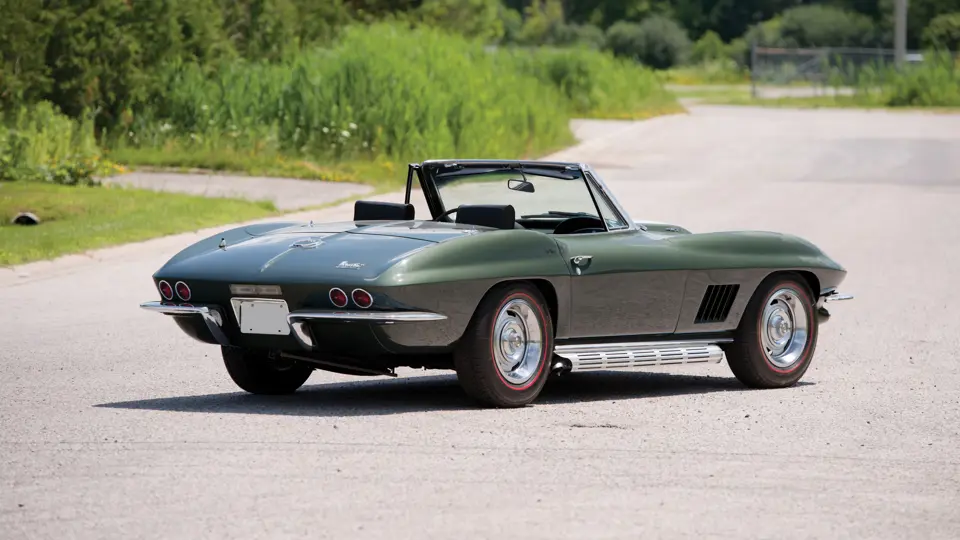
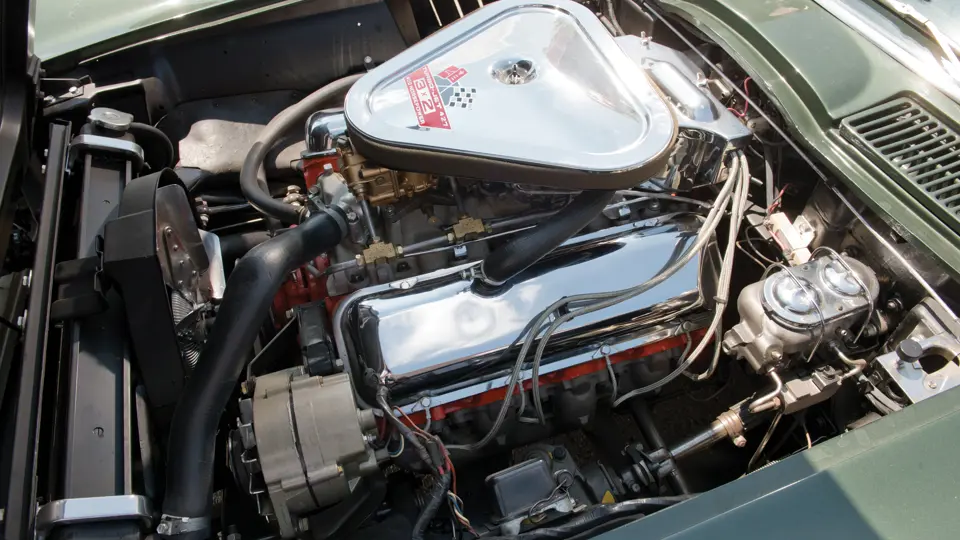


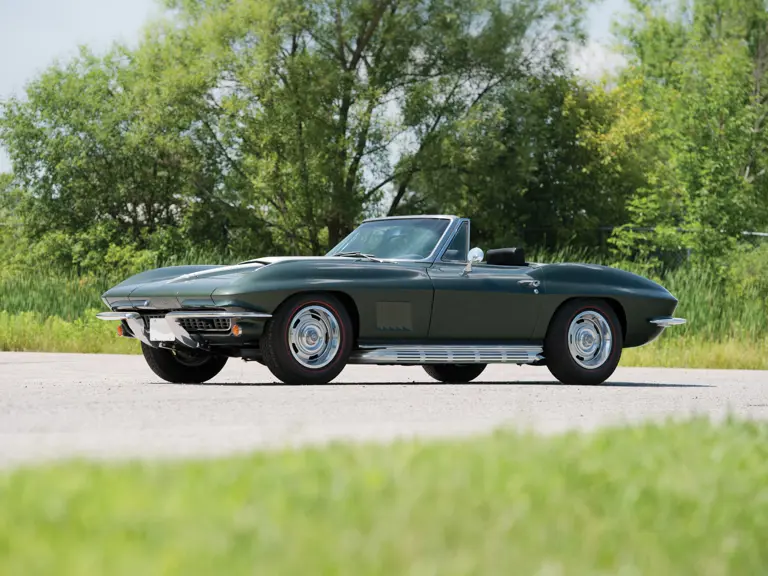
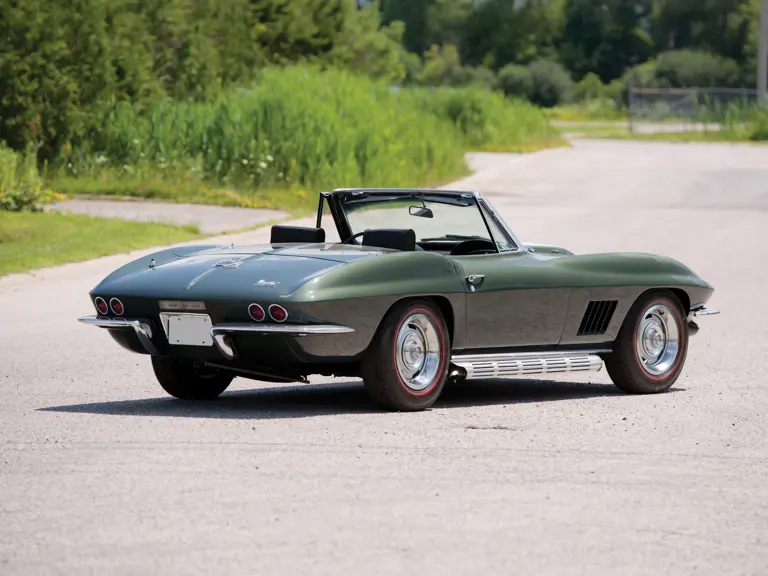
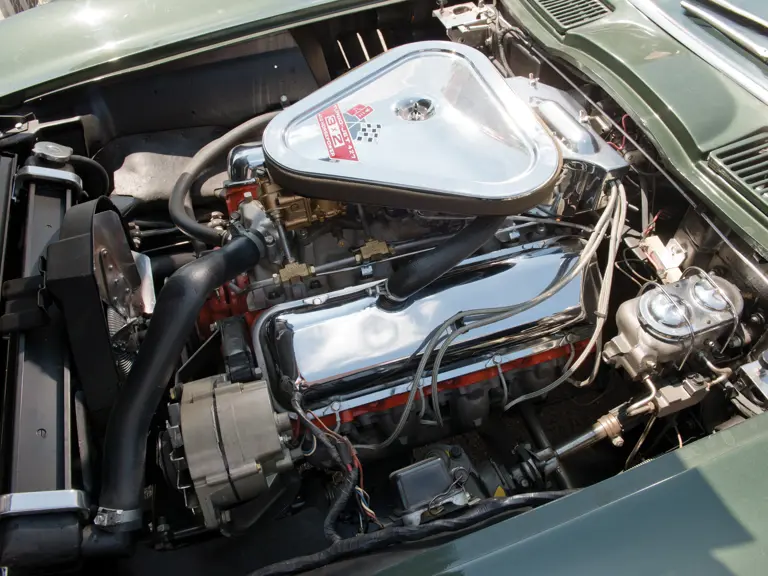
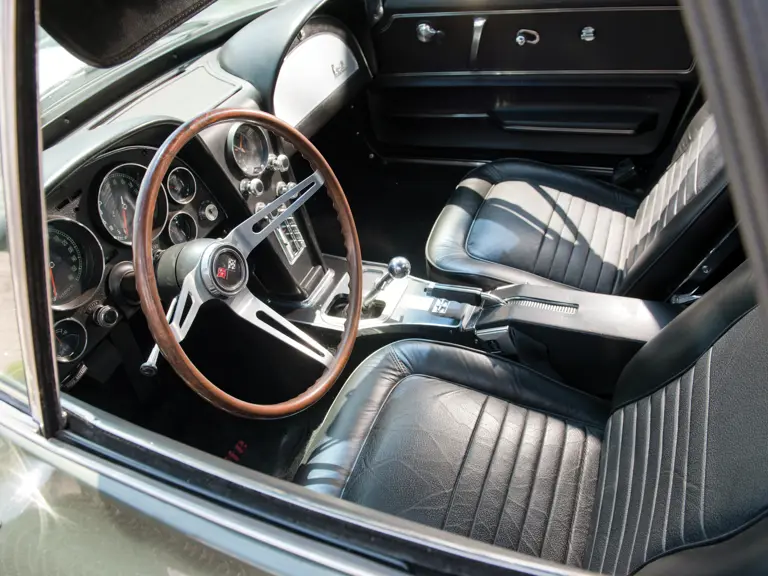
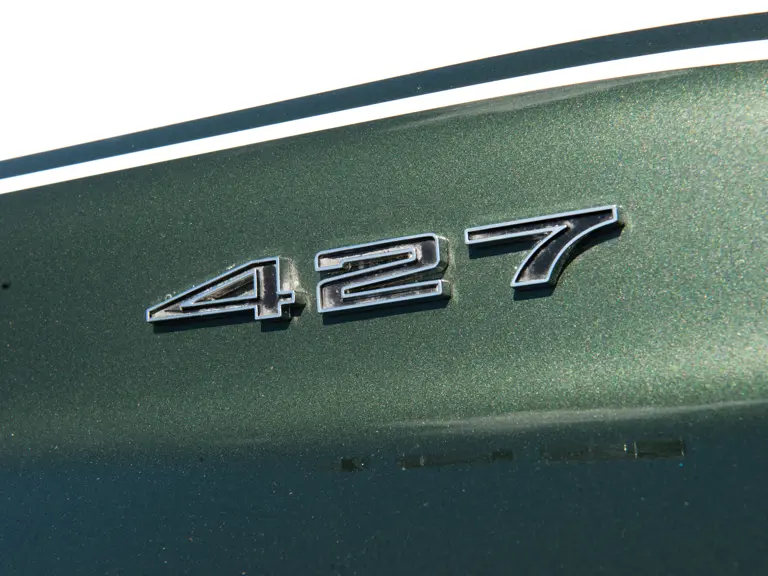
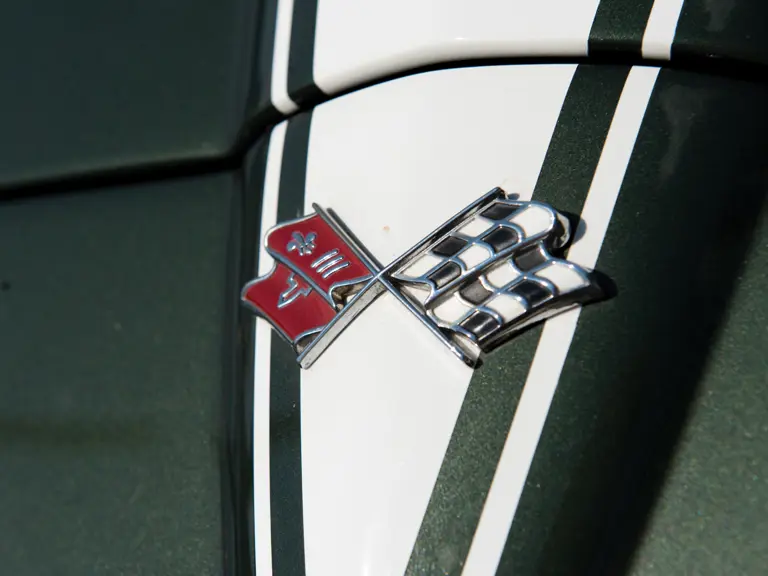
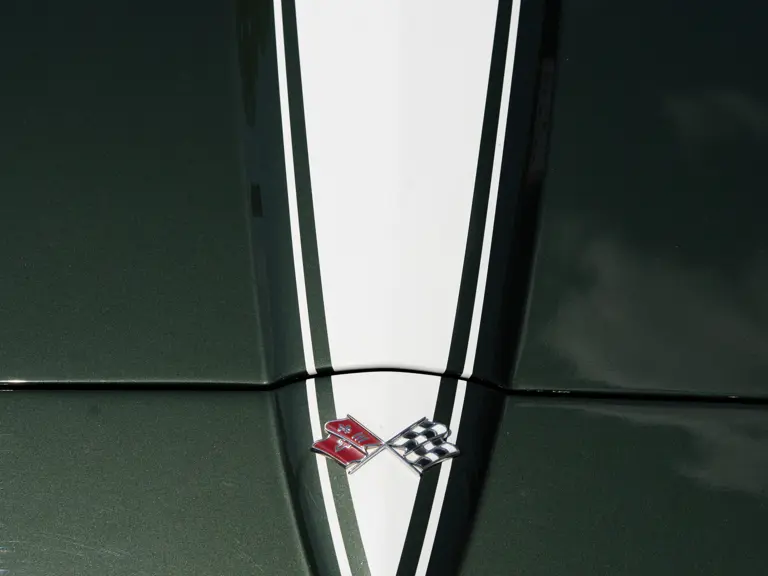
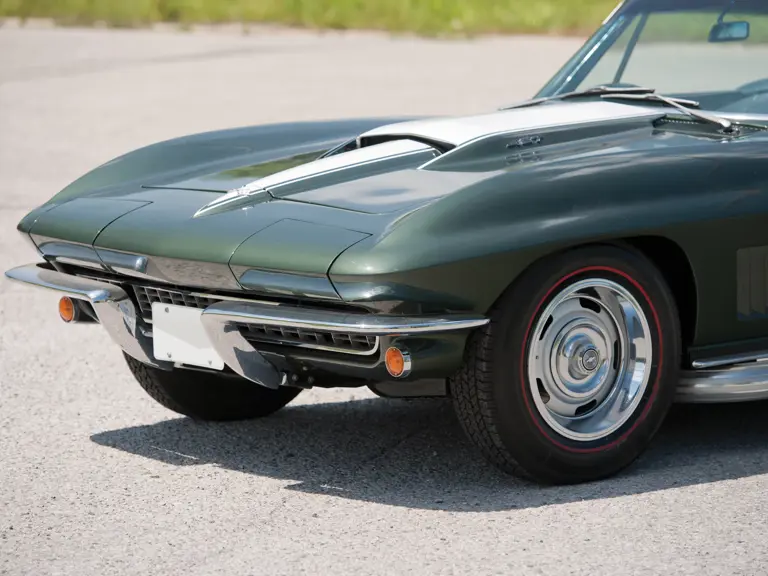
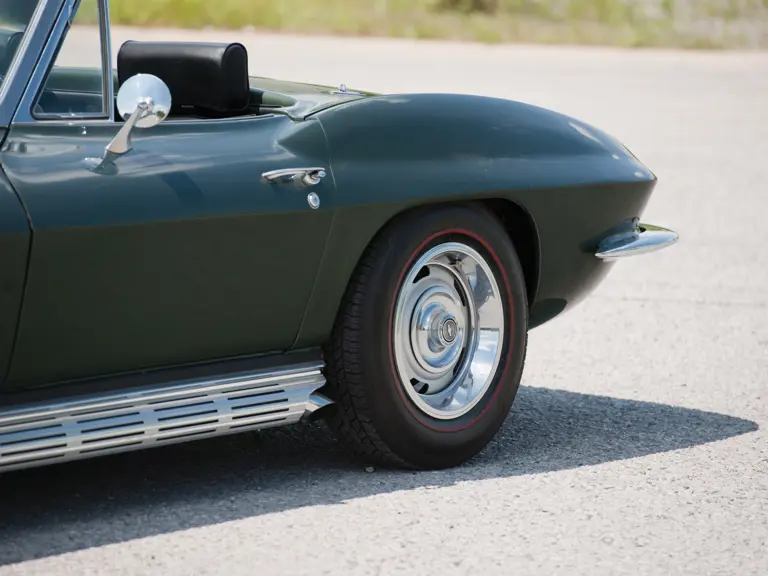
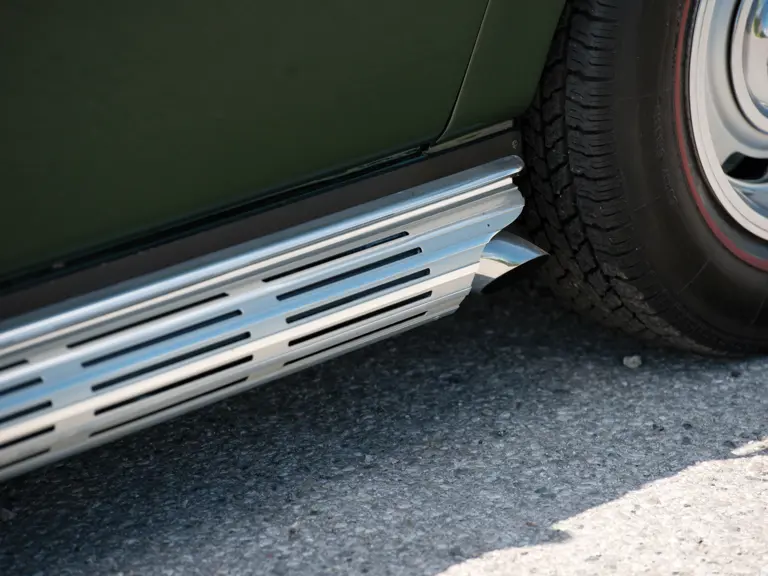
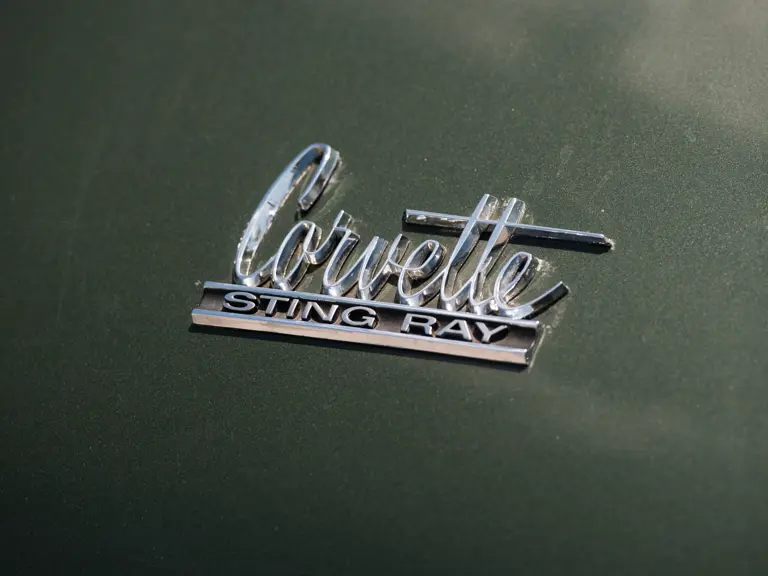
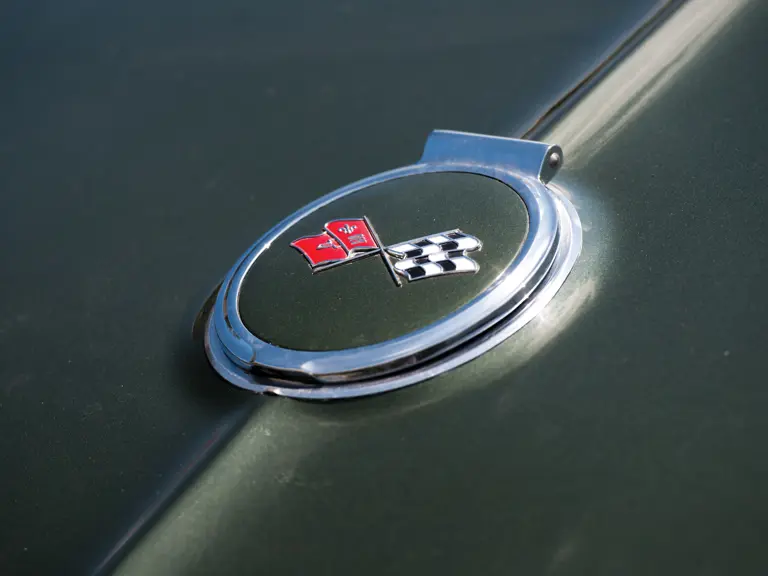
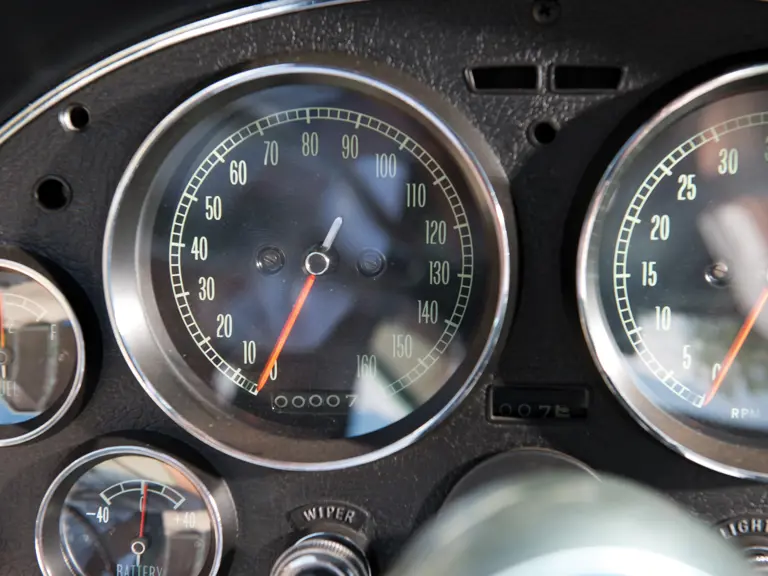
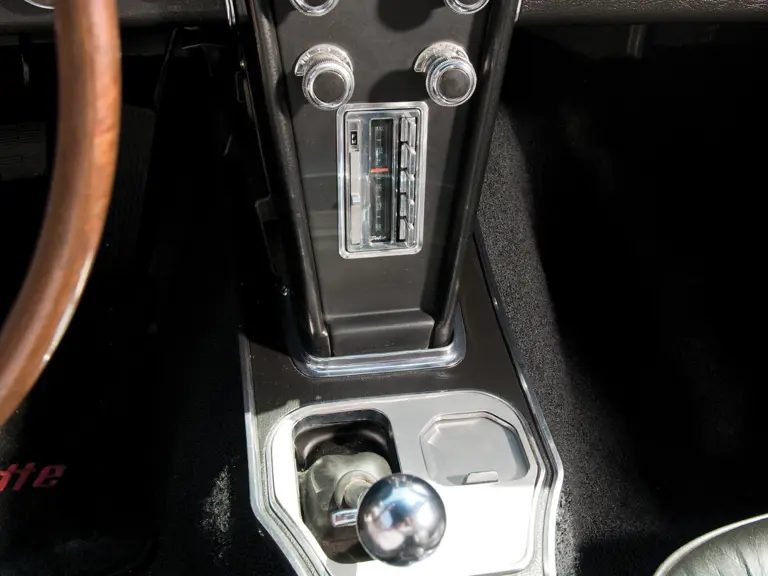
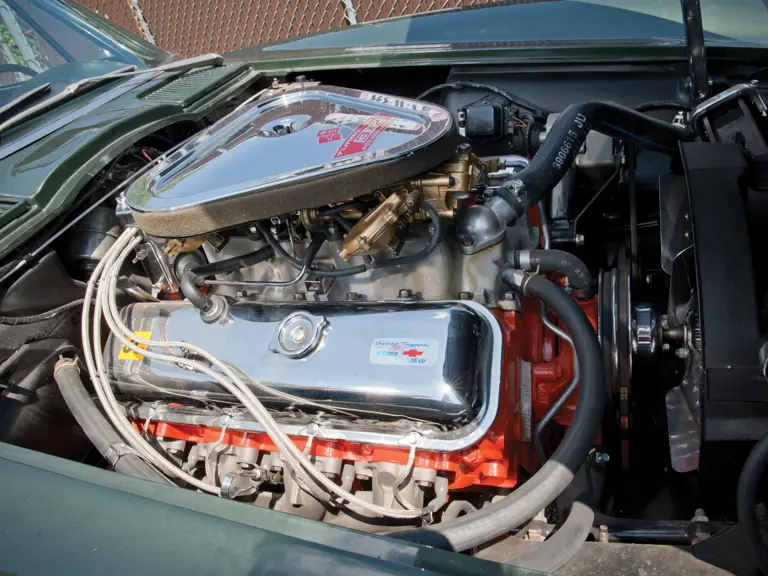
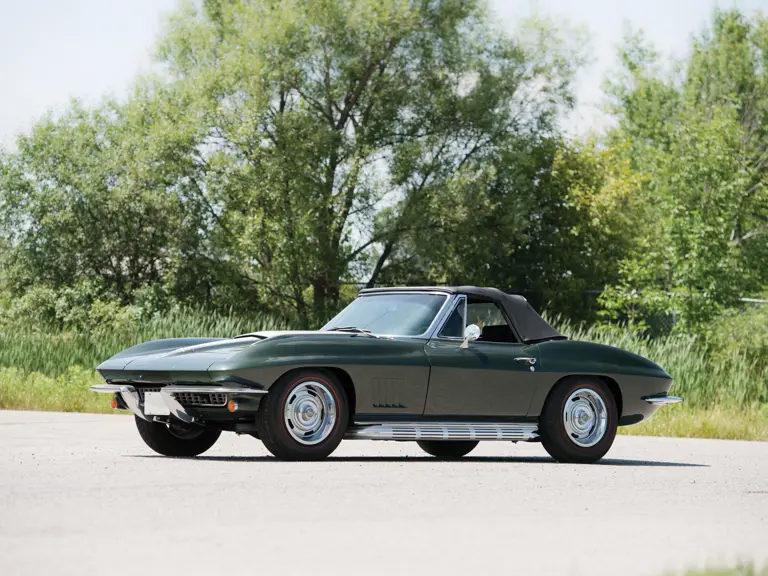
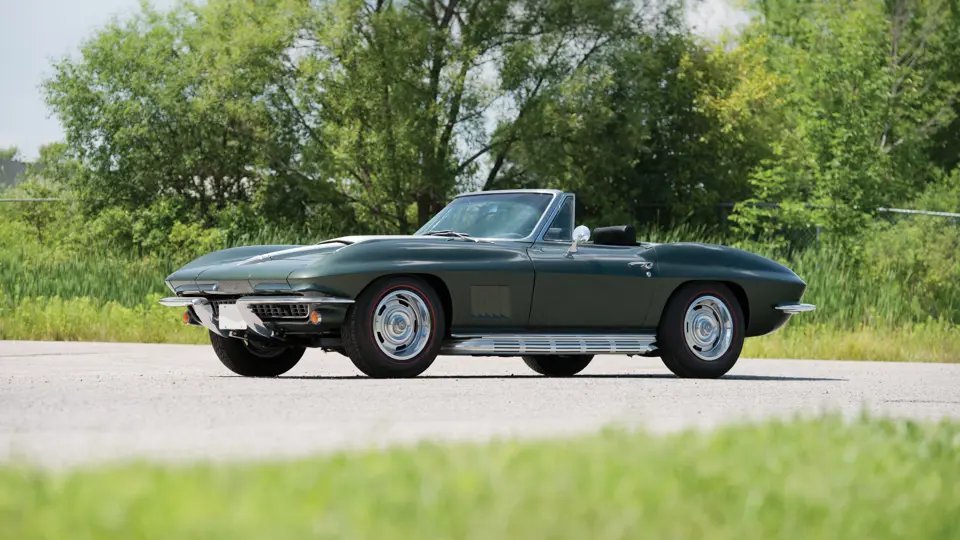
 | Plymouth, Michigan
| Plymouth, Michigan
